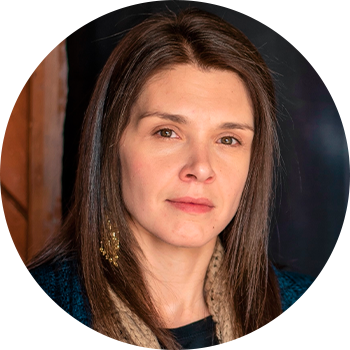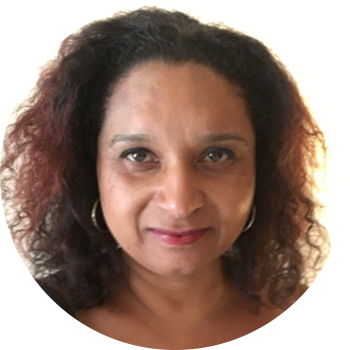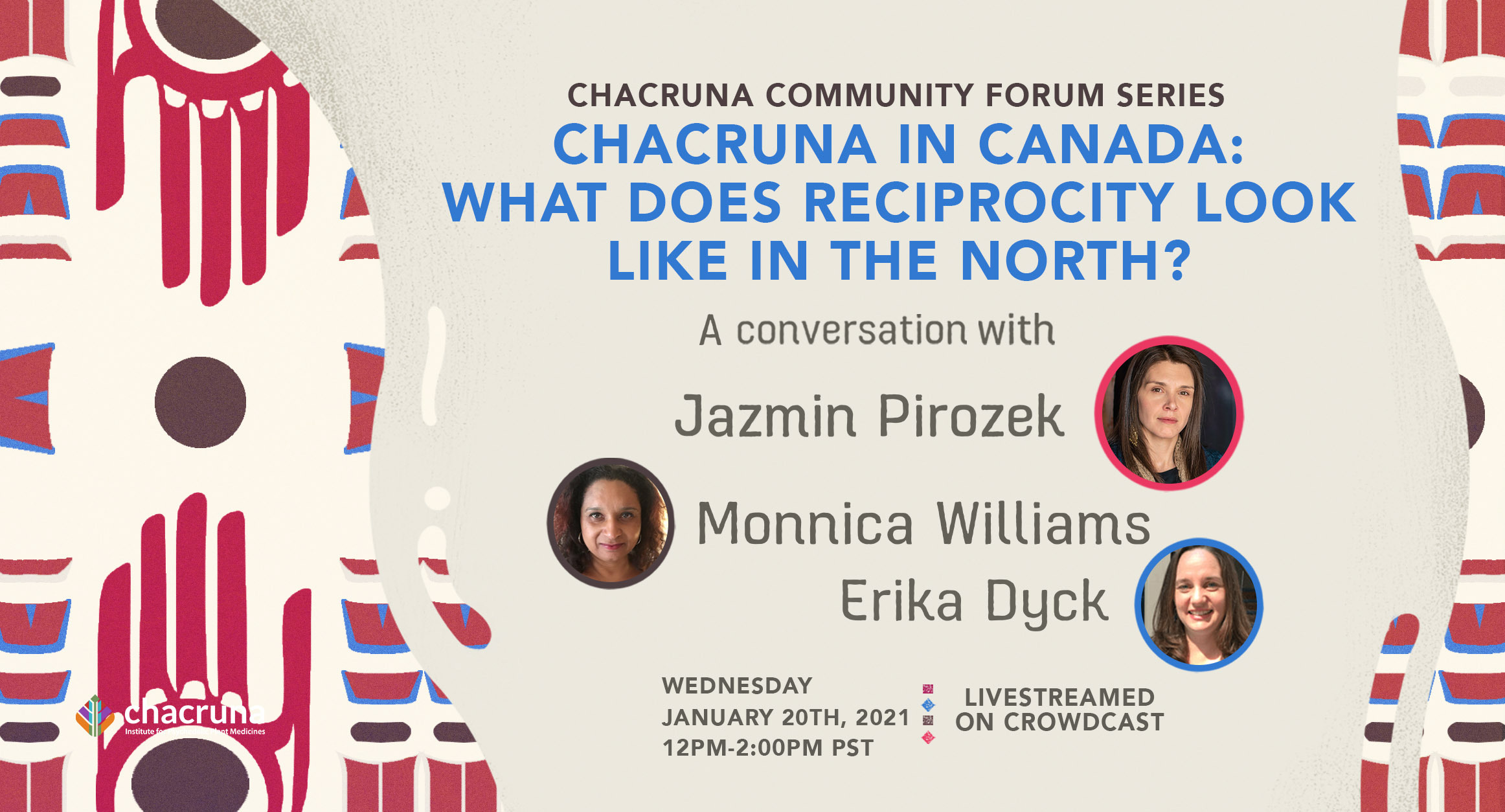Chacruna in Canada: What Does Reciprocity Look Like in the North?
A Conversation with Jazmin Pirozek, Monnica Williams and Erika Dyck
Wednesday, January 20, 2020 12-2pm PST
In 2020 Health Canada created a small number of exemptions for the use of psychedelic medicines, and officially opened the doors to a renewed set of conversations about the place of psychedelic plant medicines. Canada has a proud tradition of innovations in publicly funded health care, but a more troubled relationship with its colonial past. Psychedelic plants have been caught in different traditions, borrowing from practices of western science but also honouring traditions, rituals, and ways of knowing plants and healing traditions that were prohibited through successive Indian Acts. Canada is not known for its organic psychedelic plant medicines, but has its own rich and diverse history of plant medicines and teachings that raise cultural, philosophical, and economic questions about what it means to decriminalize psychedelics in Canada.
In this discussion, we talk about what psychedelic plant medicines mean for Canada. We move beyond policy questions to consider how psychedelic plant medicines involve deeper questions of reconciliation with Indigenous communities, and a new era of reciprocity. One that embraces shared ideas about health care objectives, spirituality in medicine, and diversity of perspectives involved in designing equitable health care options. What can we learn from the South about psychedelics and about reciprocity? Join us on to learn more.

Jazmin Pirozek, MSc, is of Kinosao Sipi, Norway House Cree Nation in Manitoba and lives in Kenora, Ontario. She is a student of Maestro Juan Flores, a Plant Medicine Teacher of the Peruvian Amazon. Jazmin has received her master’s degree in Biology, focussing on Boreal Forest Ethnobotany, as well, she is a graduate of Boreal Forest Archaeology and Cultural Anthropology. Jazmin has travelled across Canada to share her knowledge, as well as to the United Kingdom to present at Breaking Convention 2019. She assisted in writing Science North’s Planetarium film “Under the Same Stars: Minwaadiziwin” including narration and singing for the piece. Jazmin shares her knowledge of Boreal forest medicines, continually working with the Indigenous people of Northern Ontario. Currently, Jazmin works as a consultant with a Tribal council and a Community Organization teaching knowledge that promotes well-being, healing and self-knowing.

Monnica T. Williams is a board-certified licensed clinical psychologist and Associate Professor at the University of Connecticut in the Department of Psychological Sciences and Department of Psychiatry. She is also Clinical Director of the Behavioral Wellness Clinic, where she provides supervision and training to clinicians for empirically-supported treatments. Prior to her move to Connecticut in 2016, Dr. Williams served as the Director of the Center for Mental Health Disparities at the University of Louisville in the Department of Psychological and Brain Sciences. Dr. Williams’ research focuses on African American mental health, culture, and psychopathology, and she has published over 100 scientific articles on these topics. Current projects include the assessment of race-based trauma, unacceptable thoughts in OCD, improving cultural competence in the delivery of mental health care services, and interventions to reduce racism. This includes her work as a PI in a multisite study of MDMA-assisted psychotherapy for PTSD. She also gives diversity trainings nationally for clinical psychology programs, scientific conferences, and community organizations. Dr. Williams is a member of Chacruna’s Racial Equity and Access Committee.

Erika Dyck is a Professor and a Canada Research Chair in the History of Health & Social Justice. She is the author of several books, including: Psychedelic Psychiatry: LSD from Clinic to Campus (Johns Hopkins, 2008; University of Manitoba Press, 2011); Facing Eugenics: Reproduction, Sterilization and the Politics of Choice (University of Toronto, 2013), which was shortlisted for the Governor General’s award for Canadian non-fiction; Managing Madness: the Weyburn Mental Hospital and the Transformation of Psychiatric Care in Canada (University of Manitoba Press, 2017), which won the Canadian Historical Association Prize for best book in Prairie History; and with Maureen Lux, Challenging Choices: Canada’s Population control in the 1970s (McGill-Queens University Press, 2020). She is also the co-editor of Psychedelic Prophets: The Letters of Aldous Huxley and Humphry Osmond (2018); and A Culture’s Catalyst: Historical Encounters with Peyote (2016). Erika is the co-editor of the Canadian Bulletin for Medical History/Bulletin canadien d’histoire de la medicineand the co-editor of a new book series on the global history of alcohol and drugs, called Intoxicating Histories. Erika is Associate Director of Chacruna in Canada.
Do you love Chacruna? Want free entry to events, access to our online member community and exclusive events, free merchandise, and much more! Become a member! https://www.patreon.com/chacruna
Scholarships Available. Apply here: https://forms.gle/27Lz3jDWtyHgJCaz9
Take a minute to browse our stock:
Did you enjoy reading this article?
Please support Chacruna's work by donating to us. We are an independent organization and we offer free education and advocacy for psychedelic plant medicines. We are a team of dedicated volunteers!
Can you help Chacruna advance cultural understanding around these substances?











